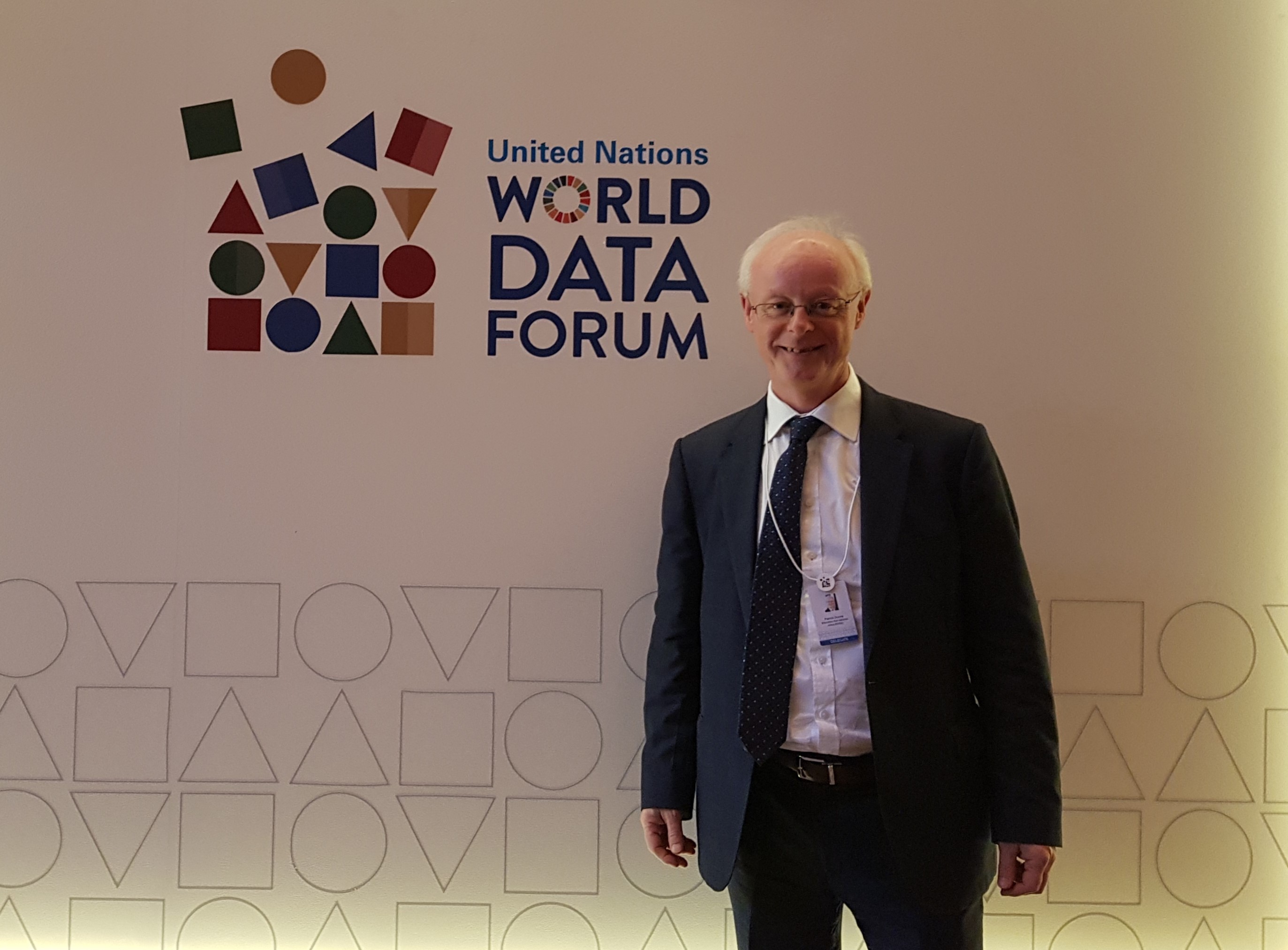Accessibility and clarity of data changes people’s lives for the better
by Patrick Dunne

It’s a real privilege to be attending the second UN World Data forum in Dubai this week. Almost 2,000 delegates from across the world, ranging from Heads of Government, Stats departments, Aid agencies, NGO’s, academics and of course the many commercial sponsors in the data space, have come together to learn, to share problems and to stimulate collaboration.
The focus on data systems and capacity development for supporting the achievement of the sustainable development goals is coming through loud and clear. It is spot on and the UN should be congratulated for convening this event.
Our wide and varied programme has 6 simultaneous sessions on the go for each time slot. So, there is almost something for everyone, no matter what your data preferences.
It was particularly noticeable how much interest there was in the 7 sessions on capacity development. After all, if we don’t boost data science capacity and capability then all the grand data edifices people are designing won’t actually be built or will crumble into sand within moments of creation. Data literacy in societies is an important aspect of this and was illustrated with a brilliant example from Mongolia.
Johannes Jütting, from Paris 21, shared some research from 195 countries including 45 from Africa on priorities for capacity development. The results showed that the priorities in both developed and developing countries are now going beyond technical skills. Management, co-ordination and communication skills are now top of the list. There was also a feeling from low income countries that donors are not responding to this need. So there remains huge demand for capacity development but with a different approach.
On behalf of Education Sub Saharan Africa (ESSA), I was able to make the point that more focus was needed on the fundamental pipeline of data science talent. There was enthusiasm for putting increased emphasis on capacity development at Data science departments at universities, increasing scholarship funding in this space and collaborating with universities on projects to encourage and inspire more of talent to go into the sector.
Taking advantage of the mood in the room I called for the national statistic bodies to mobilise their rising stars and to get them out inspiring undergraduates across the continent and demonstrating how exciting a job in data science now is. Oliver Chinganya, the Zambian Director of the African Centre for Statistics at the UNECA (UN Economic Commission for Africa), reinforced this and also added the need to raise salaries in the sector and have top quality career development programmes in order then to keep the talent
In a different session Neil Jackson Head of stats for DFID gave a good example of DFID’s work in Ghana, Kenya and Rwanda in supporting the modernisation of statistical systems. He also highlighted the fact that basic demographic data remains a big issue in some countries. This was emphasised with force in the main plenary session on day one when Mahmoud Mohieldin from the World Bank said that in many challenged countries up to 40% of the population may not have ID so are missing from data.
Finally, when it comes to the big so what, so what is the point of all of this data and all these data scientists anyway? Harpinder Collacott the Executive Director of Development Initiatives summed it up well. She stressed the importance of accessibility and clarity of data so that policy makers can change individual people’s lives. That’s the point, to change people’s lives for the better! Our work on demographics of faculty, our scholarship impact hub and our state of statistics project are all aimed to change the discourse, influence policies, investment and action with the objective of helping to transform educational outcomes across sub-Saharan Africa.